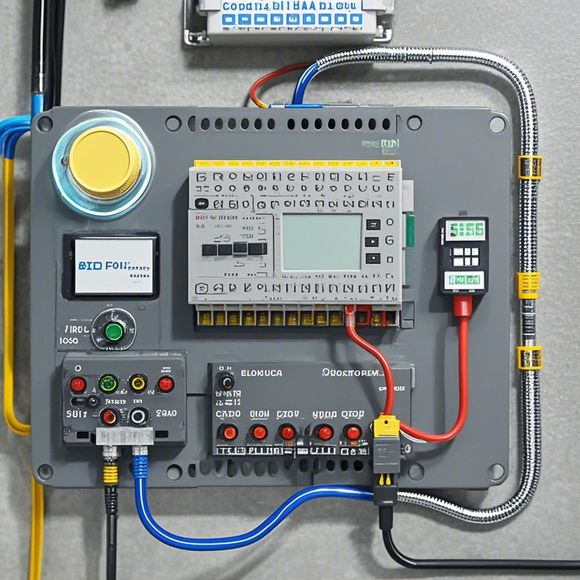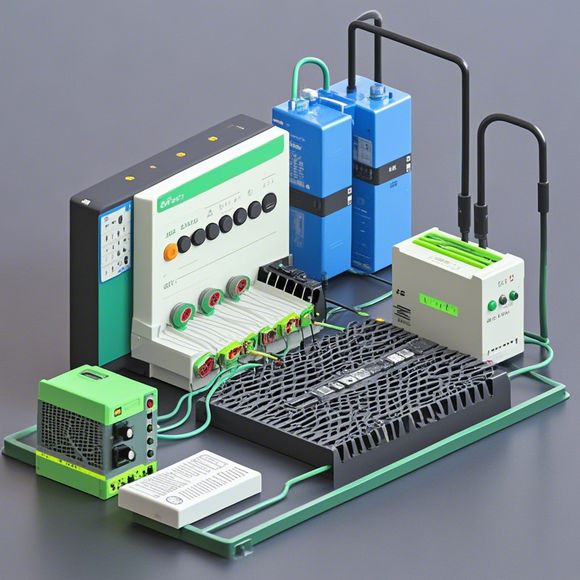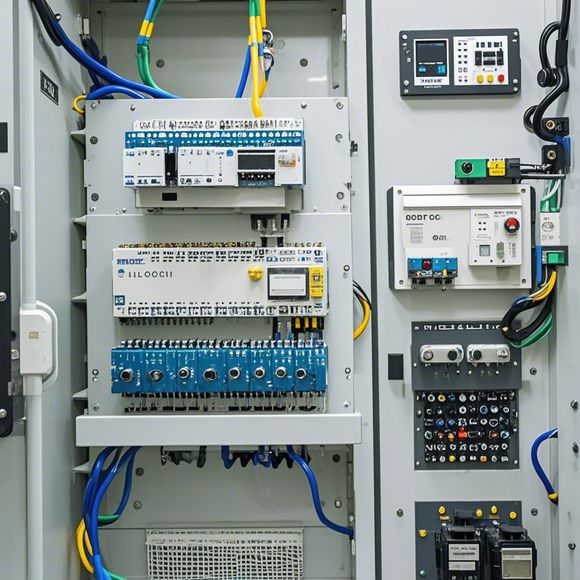PLC Controllers: The Backbone of Automation Systems
In the world of automation systems, Programmable Logic Controllers (PLCs) play a crucial role as the backbone. These devices are designed to handle complex tasks by processing data and making decisions based on pre-programmed instructions. The efficiency and reliability of an automation system depend on the quality of its PLC controllers, making them essential components in any industrial or manufacturing environment. With their ability to handle multiple inputs and outputs, PLCs can be customized to meet the specific needs of various industries, from healthcare to manufacturing. The robust programming features of modern PLCs allow for easy integration into existing systems, while their ability to process high volumes of data makes them ideal for large-scale applications. As automation continues to grow in importance, it's clear that PLCs will continue to be at the heart of these systems, providing reliable and efficient control over processes that impact our everyday lives.
Introduction:

In the world of industrial production, automation has become increasingly crucial. One critical component of any automated system is the Programmable Logic Controller (PLC). These intelligent controllers are designed to manage and control complex systems, making it easier for manufacturers and engineers to operate machines and processes with precision and efficiency. In this guide, we will delve into the intricacies of PLC controllers, exploring their functions, applications, and how they contribute to modern automation.
Functions of PLC Controllers:
PLC controllers are designed to handle a wide range of tasks, from simple timers and counters to complex logic-based systems. Their primary functions include:
1、Data Acquisition: PLCs can be programmed to collect real-time data from sensors or other sources, allowing operators to monitor and control processes in real-time.
2、Data Processing: After acquiring data, PLCs can process it according to predefined algorithms, making it possible to perform calculations or generate output signals.
3、Control Output: Based on the processed data and logic, PLCs can generate output signals that trigger devices or actuators, such as motors or valves, to carry out specific tasks.
4、Interaction with Other Systems: PLCs can also communicate with other automation systems, such as computers or other PLCs, enabling them to work together seamlessly.
Applications of PLC Controllers:
With their versatile functions, PLCs have found widespread use across various industries:
1、Manufacturing: In factories, PLCs are commonly used to control machinery, monitor production lines, and ensure high-quality products are produced consistently.
2、Transportation: In transportation systems, PLCs help coordinate vehicles and equipment, ensuring smooth and efficient operations.
3、Energy Management: In power generation, PLCs help manage energy consumption, optimize energy usage, and reduce costs.

4、Healthcare: In healthcare settings, PLCs are used to manage patient care, monitoring vital signs, and controlling equipment in surgical or diagnostic settings.
5、Agriculture: In agriculture, PLCs are essential for managing irrigation systems, monitoring crop growth, and ensuring safe and efficient farming practices.
6、Retail: In retail settings, PLCs enable efficient inventory management and customer service operations.
7、Construction: In construction projects, PLCs help coordinate materials handling, construction equipment, and ensure safety standards are met.
8、Telecommunications: In telecommunications networks, PLCs are used to control switches and routers, ensuring reliable network connections and communication.
9、Industrial Robotics: In robotics applications, PLCs provide the programming and control necessary for sophisticated robotic systems to perform tasks autonomously.
10、Safety Systems: PLCs are used in safety systems to monitor and control emergency situations, ensuring proper response times and minimizing potential risks.
Benefits of PLC Controllers:
The benefits of using PLC controllers are numerous and far-reaching:
1、Cost Efficiency: PLCs offer significant cost savings by reducing the need for manual intervention and manual labor, leading to lower operating costs.
2、Increased Productivity: By automating processes and reducing downtime, PLCs help improve productivity and maximize output.
3、High Precision Control: PLCs can precisely control processes, ensuring consistent results and quality output.

4、Robustness and Durability: PLC controllers are built to withstand harsh conditions and operate reliably over long periods.
5、Customization and Customization: PLC controllers can be customized to meet specific requirements, enabling them to work effectively in diverse environments.
6、Easy Maintenance: PLC controllers are designed with ease of maintenance in mind, making them easy to troubleshoot and upgrade.
7、Integration Capabilities: With robust communication protocols, PLC controllers can easily integrate with other systems, enhancing overall automation capabilities.
8、Compatibility with Industry Standards: PLC controllers are compatible with a variety of industry standards, facilitating interoperability across different systems.
9、Real-Time Analytics: PLCs can analyze data in real-time, providing valuable insights that can inform decision-making and improve operational efficiency.
10、Environmental Sustainability: Utilizing PLC controllers can help minimize waste and emissions, contributing to environmental sustainability.
In conclusion, PLC controllers play a crucial role in modern automation systems. Their ability to process, control, and interact with various systems makes them an essential tool for improving efficiency, reducing costs, and enhancing product quality across various industries. As technology continues to evolve, the capabilities of PLC controllers will only continue to expand, offering even more possibilities for automation success.
Content expansion reading:
Articles related to the knowledge points of this article:
Mastering the Art of Plc Controllers: A Comprehensive Guide to Understand and Implement
PLC Controller for Manufacturing Automation
PLC Programming for Automation Control in the Manufacturing Industry
PLC (Programmable Logic Controller) Control System Basics
The Role of Programmable Logic Controllers (PLCs) in Foreign Trade Operations